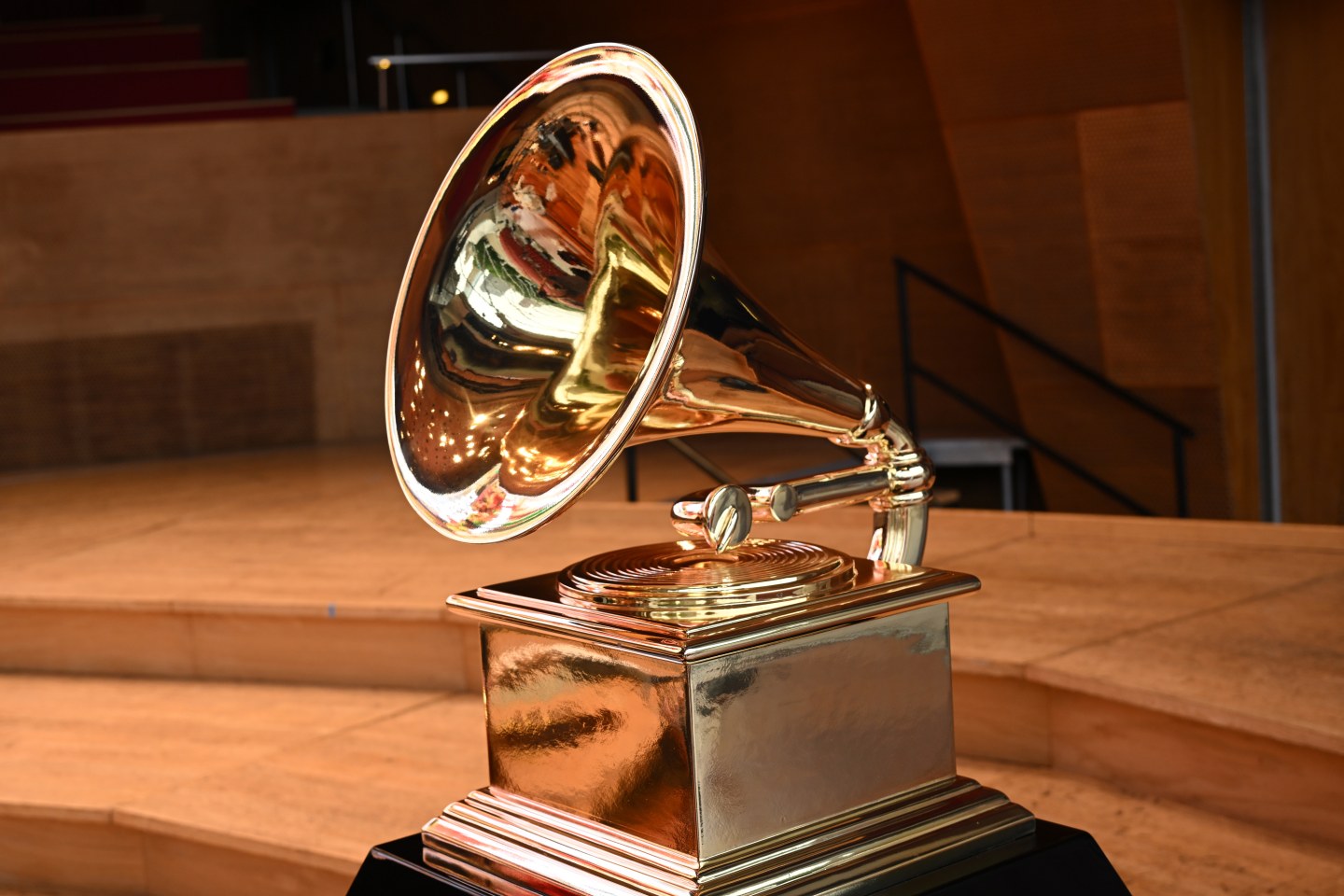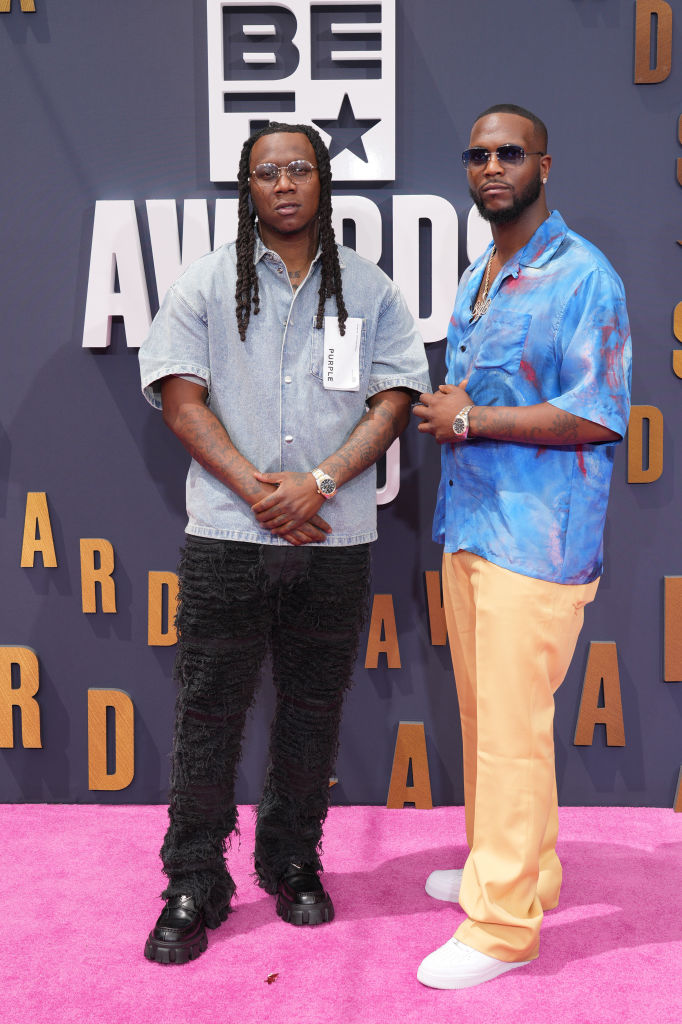Grammy Statue. Photo by Daniel Boczarski/Getty Images
Last month, the Grammys announced their annual awards show would move from longtime host CBS to ABC and Hulu starting in 2027. The 10-year deal is a retrenchment of Music’s Biggest Night™ following a pandemic ratings nadir, although viewership of just 9.2 million in 2021 had recovered to a healthy 16.9 million by this February. Three years into the tenure of CEO Harvey Mason Jr., the Recording Academy has made a public effort to expand and diversify the ranks of the Grammys electorate, taking steps to recertify veteran voters and reorganize overly fractured voting categories. The end result is a voting body with more women and people of color than ever before, even if the Recording Academy remains 62% male and 64% over the age of 40. In recent interviews, Mason has sounded content about where the awards show is currently at, and the Academy has been broadly celebratory about its diversity achievements. Barring divine or Disney intervention, these are the Grammys we’re getting for the next decade and change.
Last year, I joked the Grammys still matter because they “make so many people miserable all at once.” And while I’m never holding my breath for any institution to reflect the music I personally enjoy, the awards have come a long way from Macklemore’s infamous 2013 sweep. Rap has always been a weak point for the Recording Academy, and while the old complaints — out of touch, behind the times, too safe, industry plant allegations — still ring true, they feel less egregious, more like limitations of the format. The Grammys will probably never be as brutally wrong as they were in 2013, but whether they can reestablish themselves as a genuinely influential force remains to be seen.
Six months ago, Jordan Adetunji was posting snippets with the caption “Whatever this genres called I’m sliding on it rn.” Then Kehlani heard “Kehlani” and hopped on the remix. Now the 25-year-old from Belfast is up for sexy drill’s first potential Grammy for Best Melodic Rap Performance. Sure, this is more about Kehlani than Adetunji — since the Grammys reshuffled categories last year, R&B and rap share the same self-appointed subset of Academy voters — but it’s a relatively rare acknowledgment of hip-hop’s evolving present from an institution that remains preoccupied with prestige.
“Kehlani” isn’t the worst sexy drill song this year, but it is pretty watered down: close your eyes and you can almost see a TikTok influencer lip-syncing “Bad just like Kehlani is” to sell waist trainers. But that’s probably part of why it’s gotten as far as it has in the first place. As diverse as the Grammys may get, they remain a prestige award, erring toward respectability to a fault: anything too street or too sexual seems like a no-go for the voting body.
Some of the obvious “exceptions” only reinforce the implicit hierarchy. Ice Spice was nominated for songs with Nicki Minaj and Taylor Swift, already well-liked by the Academy, while Lil Durk got his first nominations with Drake, but only won when he tapped J. Cole and a children’s choir for “All My Life.” One bright spot here is contemporary female rap, though you might point to the fact “WAP” was never nominated as proof some things are still a bridge too far. This year Latto is up for “Big Mama,” a quietly freaky track that deserves to win over “Kehlani” et. al, but even this feels like a combination of a traditionalist album and recognizability (she was nominated in the same category last year for the unenjoyable “Big Energy”).
Hornballs like Cash Cobain, Sexyy Red, and NLE Choppa will probably never see a Grammy nomination unless they’re attached to Academy-approved artists like Tyler, the Creator, Drake, or Travis Scott. Chief Keef has never been nominated; Lil Baby has one Grammy, but it’s for “Hurricane” with Kanye West, who the Academy loves so much that “Carnival” could win an award post-antisemitic rants and allegations of sexual assault. The Recording Academy is friendlier to younger artists nowadays, but that probably means more for Sabrina Carpenter than it does for GloRilla.
The 20-second snippet at the start of this clip alone should win “Not Like Us” the Best Music Video Grammy off rip — Lord knows the competition sucks. But of the six awards in the Grammys’ general field (which every member votes on), the real category to watch is Song of the Year. My gut says Beyoncé is most likely to win Album of the Year: although Cowboy Carter was ignored by the Country Music Awards, it has a nomination for each of the country Grammys, which could be an indicator, though even the most committed members of the Beyhive must admit this album isn’t close to her best work. But whether she’s snubbed once again for Taylor Swift or not, I don’t think you could divine much about the Academy from either outcome.
Over the past ten years, Kendrick Lamar has faced a similar problem as Beyoncé, albeit on a smaller scale. They’re nearly always favorites to win in the genre categories (Macklemore’s 2013 run of rap Grammys notwithstanding), but the big prizes remain out of reach. It seems clear that their ground game and industry goodwill have so far been insufficient to claim the ring in general fields. But Kendrick has good odds this year, with the pop vote for Taylor Swift likely fractured by Billie Eilish, Sabrina Carpenter, and Chappelle Roan’s presence in the category. “Not Like Us” isn’t too big to lose to Beyonce, but it’s certainly big enough to win over her.
Setting aside the Drake of it all for a moment, whether his peers will vote for a diss against him and more importantly, what he’ll do if Kendrick wins, “Not Like Us” had so much juice this year Mustard is up for Producer of the Year (He deserved one 10 years ago for “Don’t Tell ‘Em,” though I’d personally give him one for “4Gs”). Taken alongside nominations for Carpenter and Roan, the Grammys’ biggest categories are surprisingly in touch with the pulse of contemporary music, even if they’re still liable to go up for the J. Coles and Jacob Colliers.
Whether the shift in nominees will translate to new energy for the awards themselves seems debatable. If you want to help choose the Grammys, you’ll need two recommendations and 12 commercially distributed credits — and the Recording Academy can still say no at its discretion. This recommendation system and centralized oversight naturally sands off a lot of potential edge in order to maintain a qualitative standard among voters, and when music moves faster than industry insiders can make new friends, the Grammys are left even further behind the ball; a standard meant to insulate the awards from trends instead makes them insular, myopic. A conversation with the zeitgeist requires more than diversity and new categories — it’s a lengthy and thorny process, but one that ultimately allows awards shows to thrive. The Grammys probably won’t make that leap unless it’s forced on them; if they’re still around in ten years, it just might be.




